1. 9 Chapter 6 Water talk 课件(牛津上海版八年级下册)
(完整版)上海牛津沪教版八年级(下)同步讲义unit6
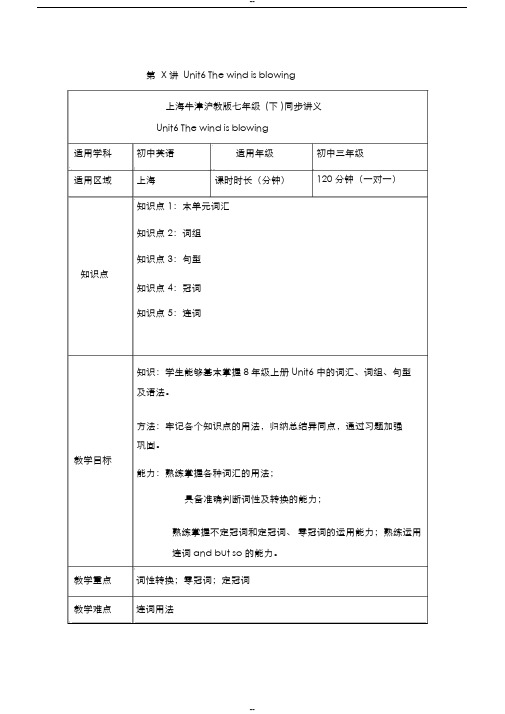
e.g. There is an“n”in the word“nose”.
有一个字母“n”在单词 “nose”里面。
⑧以u开头的字母的发音以辅音音素开头,前面的不定冠词用a
e.g.a useful book
一本有用的书。
2)定冠词the的用法
①特指某(些)人或某(些)事物
不久他的脸就变红的。
4.知识点四:常见语法
1)不定冠词a / an的用法
①泛指或类指的一个人或物
②表示人的身份或事物的性质
e.g.She is an engineer.
她是一个工程师
③表示数量,有“一”的意思
e.g.There is a dog under the table.
在桌子下面有一只猫
④a / an用在一些习惯用语中
【词性】v.
【词义】使能够,授予权力或方法
15)influence['?nfl??ns]
【词性】n.
【词义】影响,感化,势力
16)culture['k ?lt??(r)]
【词性】n.
【词义】文化(艺术、音乐、文学等的统称)
【易混淆点 】cultural
16)throughout[θru:?a?t]
【词性】prep.
have a look看一看, with a smile带着微笑, take an active part in积
极参加, have a walk散步等。注意:
⑤有些单词首字母虽然是元音,却不是元音音素发音,这些单词前
的不定冠词用a
e.g. a European country一个欧洲的国家, a one-eyed cat一只独眼猫,
1. 6 Chapter 6 Water talk 课件(牛津上海版八年级下册)
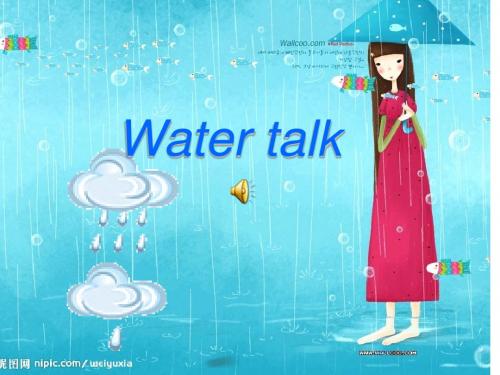
Water talk
Jinhua No.5 Middle School Yang Bin
reservoir
stream
1 2 3 4 5
1. The scientific symbol for water is_________. A.H2O B.H2O2 C.HO2
2. About ________ of the earth is covered by water. A. one third B. two thirds C. One half
The water’s journey
cloud stream Yangtze River reservoir
Huangpu River water treatment works
Daisy’s bathroom
sewage plant sea
Discussion
The water is so precious, like liquid gold. What can we do to save the water? *Please… *Don’t… *Remember (not) to… *……
Group Work Water talk
• A+B map the water’s journey *make a map of the water’s journey *one is going to show and point out the places • C+D write an article about saving the water * role play the kid and the parent and write an article together * the kid is going to read out the article
沪教牛津版八年级下册英语全册教学课件
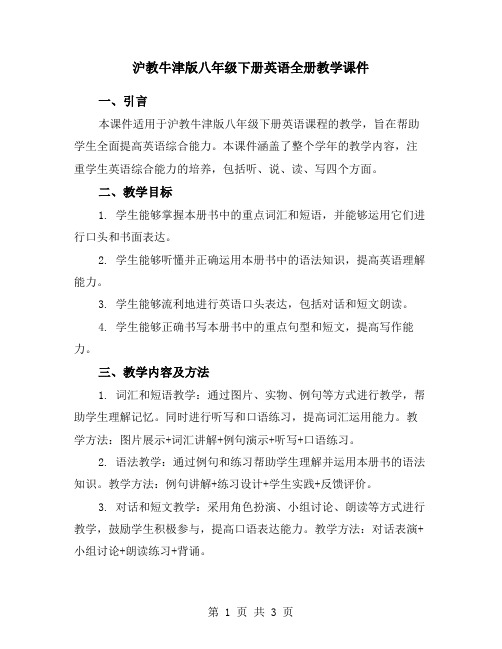
沪教牛津版八年级下册英语全册教学课件一、引言本课件适用于沪教牛津版八年级下册英语课程的教学,旨在帮助学生全面提高英语综合能力。
本课件涵盖了整个学年的教学内容,注重学生英语综合能力的培养,包括听、说、读、写四个方面。
二、教学目标1. 学生能够掌握本册书中的重点词汇和短语,并能够运用它们进行口头和书面表达。
2. 学生能够听懂并正确运用本册书中的语法知识,提高英语理解能力。
3. 学生能够流利地进行英语口头表达,包括对话和短文朗读。
4. 学生能够正确书写本册书中的重点句型和短文,提高写作能力。
三、教学内容及方法1. 词汇和短语教学:通过图片、实物、例句等方式进行教学,帮助学生理解记忆。
同时进行听写和口语练习,提高词汇运用能力。
教学方法:图片展示+词汇讲解+例句演示+听写+口语练习。
2. 语法教学:通过例句和练习帮助学生理解并运用本册书的语法知识。
教学方法:例句讲解+练习设计+学生实践+反馈评价。
3. 对话和短文教学:采用角色扮演、小组讨论、朗读等方式进行教学,鼓励学生积极参与,提高口语表达能力。
教学方法:对话表演+小组讨论+朗读练习+背诵。
4. 重点句型和短文书写教学:通过范例和指导的方式,帮助学生掌握正确的书写格式和表达方式。
教学方法:句型讲解+范例展示+学生实践+反馈评价。
5. 利用多媒体资源,如视频、音频、网络资源等,拓展教学内容,提高学生的学习兴趣。
教学方法:视频观看+听力训练+网络资源利用。
6. 定期进行口语和写作练习的评估和反馈,帮助学生改进和提高。
教学方法:练习批改+反馈交流+建议提出。
四、教学进度本学期共18周,每周5节英语课。
教学内容分为18个单元,每个单元分为4个部分(词汇、语法、对话/短文、书写)。
每个部分需要3-4周完成。
具体教学进度如下:第1-4周:Unit 1-4 词汇和短语,简单语法;第5-7周:Unit 5-8 较长语法,对话表演;第9-12周:Unit 9-12 短文阅读和写作;第13-16周:复习和测试;第17-18周:期末复习和考试。
牛津版上海版八年级下册 Unit 1 Trees Speaking课件 (共10张PPT)
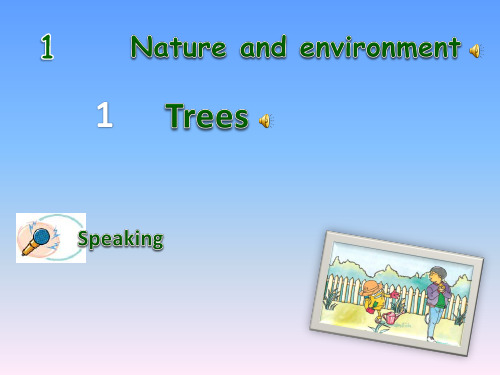
Our group thinks that the most important way to fight pollution is to ______. The second is to ______. The third is to ______. The fourth is to ______. The fifth is to ______.
Everyone in our group agrees/Most students in our group agree with these suggestions.
Ways to fight pollution
Can you think of some ways that people can do to fight pollution in our daily life?
B1 Read this conversation.
Bob Amy
Bob Amy
Bob Amy
What can we do to fight pollution? Always put rubbish in rubbish bins, and stop using plastic bags for shopping. Anything else? Stop factories and cars from producing harmful gases, plant more trees and flowers in the streets, and make our classrooms less noisy. Which ways are more important? I think that …
Word linking (I)
When we say words together that finish and start with the same consonant sounds, we only pronounce one of the sounds.
上海牛津沪教版八年级(下)同步讲义unit2
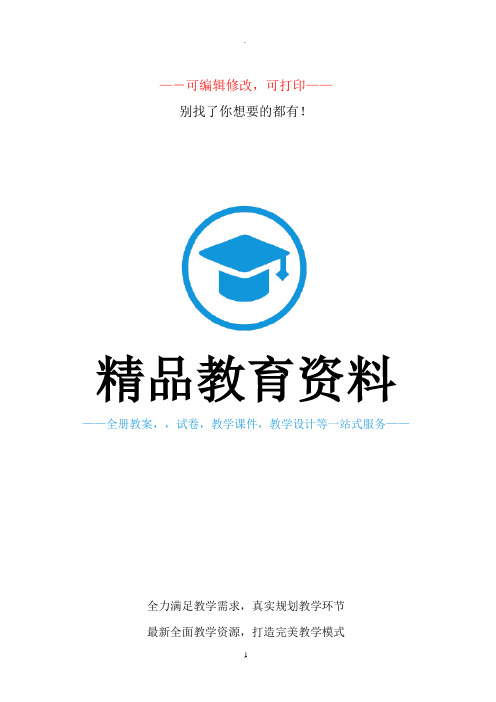
—-可编辑修改,可打印——别找了你想要的都有!精品教育资料——全册教案,,试卷,教学课件,教学设计等一站式服务——全力满足教学需求,真实规划教学环节最新全面教学资源,打造完美教学模式第二讲Unit2 Water上海牛津沪教版八年级(下)同步讲义Unit2 Water适用学科初中英语适用年级初中二年级适用区域上海课时时长(分钟)120分钟(一对一)知识点知识点1:本单元词汇知识点2:词组知识点3:句型知识点4:过去进行时知识点5:不定式的用法知识点6:定语从句教学目标知识:学生能够基本掌握8年级上册Unit2中的词汇、词组、句型及语法。
方法:牢记各个知识点的用法,归纳总结异同点,通过习题加强巩固。
能力:熟练掌握各种词汇的用法;具备准确判断词性及转换的能力;熟练掌握过去进行时时态;熟练掌握不定式的用法;熟练掌握定语从句;教学重点词性转换;不定式的用法;定语从句;教学难点不定式的用法教学过程一、课堂导入教师讲述一个与本节课题目有关的英文小故事,引出今日所要讲解的知识点,然后让学生简单梳理一下所涉及的问题,带着问题学习本节课的内容。
二、复习预习教师引导学生复习上节课学的重点内容,检测单词的用法,(以提问、回顾的形式进行),针对上节课的作业进行讲评、订正、答疑,并通过英文小故事导入本节课所要学习的新知识。
三、知识讲解1. 知识点一:重点单词1)daily [ˈdeɪli]【词性】adv.【词义】每天【经典例句】Your body needs about two litres of water daily.你的身体每天需要两升左右的水。
2)amount [əˈmaʊnt]【词性】n.【词义】数量;数额【易混淆点】an amount of 大量的,修饰不可数名词a number of 大量的,修饰可数名词【经典例句】When you exercise, the amount of water you need increase.当你锻炼的时候,你身体需要水的量就增加了。
1. 10 Chapter 6 Water talk 课件(牛津上海版八年级下册) (2)
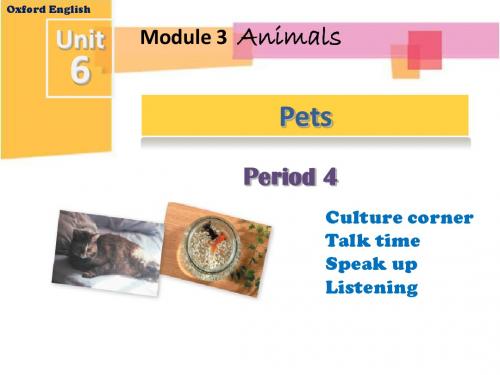
Unit
Module 3
Animals
6
Pets
Period 4
Culture corner Talk time Speak up Listening
Culture corner
More sayings about dogs
• dog-eat-dog 残酷的;竞争激烈的 • dog-tired筋疲力尽的 • Every dog has its day. 每个人都有属于自己的运气。/每个人都有时来运转的一天。 • His bark is worse than his bite. 刀子嘴,豆腐心。 • let sleeping dogs lie 不要自找麻烦;不要自讨苦吃
Listening
A Jason is talking with his friend Alice about their favourite pets. Listen to their conversation and complete the notes below. Write one word in each blank.
late buses
rude shop assistants
rotten food
defective electrical appliances
Services
overcharging
Goods
… clothes that fall apart easily scratched furniture
A1 Read the conversation below and practise it in pairs.
z x xk
Homework
1. 抄写单词和短语:respond,cause,lie, attention;lie around,keep sb. from (doing) sth.。 2. 模仿录音的语音、语调,朗读Talk time部分 的对话。 3. 完成《综合练习册》第98至100页Listening and speaking 的练习。
牛津上海版英语八下Uint 2《Water》ppt课件1
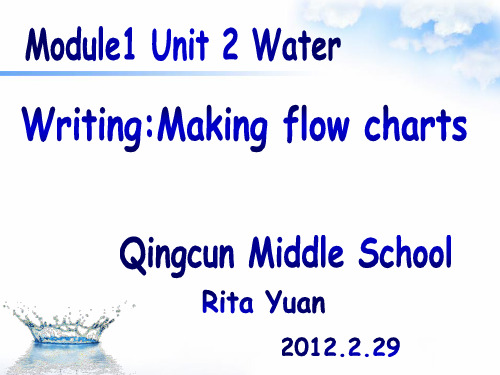
1. Why do we use flow charts? They make us understand things clearly and easily. 2. How to make flow charts? Write down: a title, some steps, some arrows, Start & End 3. Tips for making flow charts: A. steps in order B. in note form C. tense
……
The water cycle shows us how water usually travels.
W Thheastimtepnlseepsrheoseulndt wtenussee. to talkVearbbou—t—itdsou,sduoael sjourney?
floats in a cloud drops in a stream speeds down into the Yangtze River relaxes in a lake runs into the Huangpu River ……
returns to the sea
Qa.:cAormeetshoeutworfdtshienttahpe bst. etprsavwerlsititnenpiipnecsoumnpdleertethseensterneceets? c. rNunos. Tdhoewynatrheewdrriatitnen in note form.
boil water pour boiled water in wash the tea pot wash the kettle put tea leaves The tea is ready
牛津上海版八年级下册 Unit 2 Water 说课稿
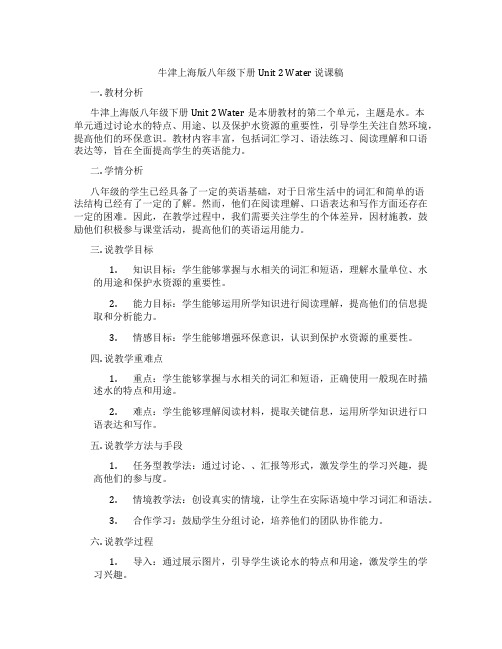
牛津上海版八年级下册 Unit 2 Water 说课稿一. 教材分析牛津上海版八年级下册Unit 2 Water是本册教材的第二个单元,主题是水。
本单元通过讨论水的特点、用途、以及保护水资源的重要性,引导学生关注自然环境,提高他们的环保意识。
教材内容丰富,包括词汇学习、语法练习、阅读理解和口语表达等,旨在全面提高学生的英语能力。
二. 学情分析八年级的学生已经具备了一定的英语基础,对于日常生活中的词汇和简单的语法结构已经有了一定的了解。
然而,他们在阅读理解、口语表达和写作方面还存在一定的困难。
因此,在教学过程中,我们需要关注学生的个体差异,因材施教,鼓励他们积极参与课堂活动,提高他们的英语运用能力。
三. 说教学目标1.知识目标:学生能够掌握与水相关的词汇和短语,理解水量单位、水的用途和保护水资源的重要性。
2.能力目标:学生能够运用所学知识进行阅读理解,提高他们的信息提取和分析能力。
3.情感目标:学生能够增强环保意识,认识到保护水资源的重要性。
四. 说教学重难点1.重点:学生能够掌握与水相关的词汇和短语,正确使用一般现在时描述水的特点和用途。
2.难点:学生能够理解阅读材料,提取关键信息,运用所学知识进行口语表达和写作。
五. 说教学方法与手段1.任务型教学法:通过讨论、、汇报等形式,激发学生的学习兴趣,提高他们的参与度。
2.情境教学法:创设真实的情境,让学生在实际语境中学习词汇和语法。
3.合作学习:鼓励学生分组讨论,培养他们的团队协作能力。
六. 说教学过程1.导入:通过展示图片,引导学生谈论水的特点和用途,激发学生的学习兴趣。
2.新课呈现:介绍一般现在时,让学生通过观察图片和阅读材料,掌握一般现在时的用法。
3.课堂活动:学生进行小组讨论,讨论水的用途和保护水资源的重要性,培养他们的口语表达能力。
4.阅读理解:学生阅读文章,提取关键信息,回答问题,提高他们的阅读理解能力。
5.语法练习:学生完成练习题,巩固一般现在时的用法。
八年级英语 U6 Water

pump into the river
go back into the sea again
precious, like liquid gold
Tell true or false.
F 1. She was washing her face at the bathroom.
T 2. The voice sounded impatient because Daisy was wasting water.
remember to flush the toilets with used water!
Without water, life would not exist.
The world without water will be like this.
Don’t make tear the last drop of water.
2.Your body needs about ____liters of water daily. A. two B. four C. eight
3. The scientific symbol for water is____. A. H2O B. HO2 C. H2O2
4.When you freeze water, it becomes ______. A. liquid B. solid C. gas
remember to finish a shower within 8 minutes.
remember to fix the dripping tap quickly!
remember to turn off the tap when we wash the dishes.
remember not to play with water!
牛津英语八下unit2water课件

牛津英语八下unit2 water 课件一、教学内容本课教材选用的是牛津英语八年级下册第二单元“Water”。
本节课主要探讨水的各种用途,涵盖饮用、农业、工业和个人卫生等方面。
通过学习,学生将掌握与水相关的词汇和短语,如“drink”、“wash”和“irrigate”等。
同时,学生将学会描述水的不同用途,并能表达自己对水的重要性的看法。
二、教学目标1. 学生能掌握与水相关的词汇和短语,并运用这些词汇描述水的不同用途。
2. 学生能听懂、说出一系列关于水用途的句子,并用英语进行简单交流。
3. 学生能理解水对人类生活的重要性,提升节约用水的意识。
三、教学难点与重点重点:学生能掌握与水相关的词汇和短语,并运用这些词汇描述水的不同用途。
难点:学生能听懂、说出一系列关于水用途的句子,并用英语进行简单交流。
四、教具与学具准备教具:多媒体课件、黑板、粉笔学具:课本、练习本、文具五、教学过程1. 情境引入:通过展示一张干旱地区的图片,引导学生思考水的重要性,引入本课主题。
2. 词汇学习:带领学生学习与水相关的词汇和短语,如“drink”、“wash”和“irrigate”等,并让学生进行随堂练习。
3. 课文讲解:讲解课文内容,引导学生学习水的不同用途,如饮用、农业、工业和个人卫生等,并让学生进行随堂练习。
4. 对话练习:组织学生进行对话练习,让学生运用所学知识描述水的不同用途。
5. 听力练习:播放听力材料,学生听后回答问题,检查学生对课文内容的理解。
7. 作业布置:布置作业,让学生课后巩固所学知识。
六、板书设计板书内容:水的用途1. 饮用2. 农业3. 工业4. 个人卫生七、作业设计1. 作业题目:用英语描述水的不同用途。
答案示例:Water is essential for various purposes. It's not just for drinking, but also for agriculture, industry, and personal hygiene.2. 作业题目:列举三种节约用水的方法。
1. 2 Chapter 6 Water talk 每课一练(牛津上海版八年级下册)
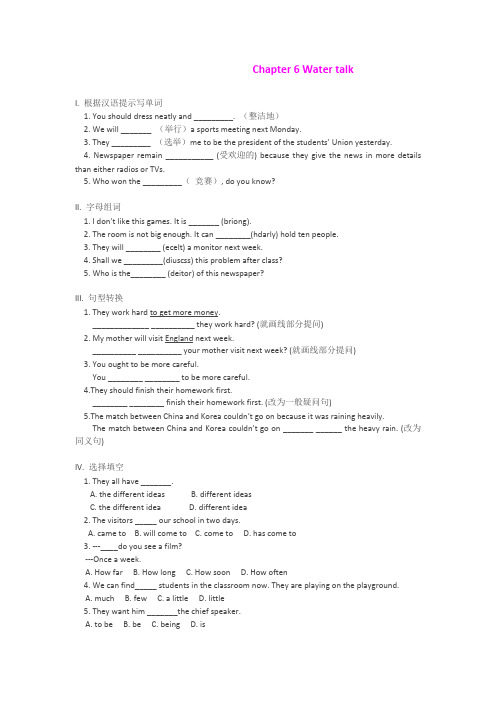
Chapter 6 Water talkI. 根据汉语提示写单词1. You should dress neatly and _________. (整洁地)2. We will _______ (举行)a sports meeting next Monday.3. They _________ (选举)me to be the president of the students’ Union yesterday.4. Newspaper remain ___________ (受欢迎的) because they give the news in more details than either radios or TVs.5. Who won the _________(竞赛), do you know?II. 字母组词1. I don’t like this games. It is _______ (briong).2. The room is not big enough. It can ________(hdarly) hold ten people.3. They will ________ (ecelt) a monitor next week.4. Shall we _________(diuscss) this problem after class?5. Who is the________ (deitor) of this newspaper?III. 句型转换1. They work hard to get more money._____________ __________ they work hard? (就画线部分提问)2. My mother will visit England next week.__________ __________ your mother visit next week? (就画线部分提问)3. You ought to be more careful.You ________ ________ to be more careful.4.They should finish their homework first.________ ________ finish their homework first. (改为一般疑问句)5.The match between China and Korea couldn’t go on because it was raining heavily.The match between China and Korea couldn’t go on _______ ______ the heavy rain. (改为同义句)IV. 选择填空1. They all have _______.A. the different ideasB. different ideasC. the different ideaD. different idea2. The visitors _____ our school in two days.A. came toB. will come toC. come toD. has come to3. ---____do you see a film?---Once a week.A. How farB. How longC. How soonD. How often4. We can find_____ students in the classroom now. They are playing on the playground.A. muchB. fewC. a littleD. little5. They want him _______the chief speaker.A. to beB. beC. beingD. is6. You must _______for the lost books.A. payB. costC. spendD. take7. ---What happened _______you? You don’t look fine.---I have a cold.A. inB. onC. fromD. to8. You may go to the police and _______help.A .ask B. ask for C. asking D. to ask for9.Can she do her homework by ______?A. himselfB. ourselvesC. herselfD. themselves10. Have you finished _________ the picture?A. drawB. to drawC. drewD. drawing【试题答案】I. 1. tidily 2. hold 3. elected 4. popular 5. competitionII. 1. boring 2. hardly 3. elect 4. discuss 5. editorIII. 1. Why do 2. Where will 3. ought not 4. Should they 5. because of IV. 1—5 BBDBA 6—10 ADBCD。
牛津版上海版八年级下册_unit_2_water_教案(1)教案
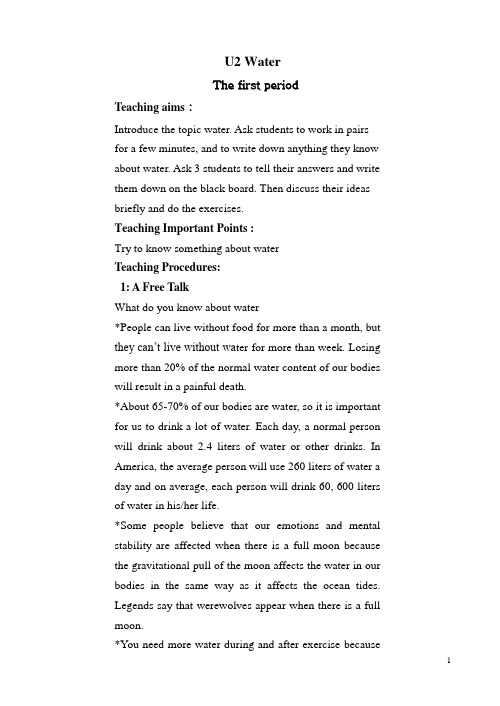
U2 WaterThe first periodTeaching aims:Introduce the topic water. Ask students to work in pairs for a few minutes, and to write down anything they know about water. Ask 3 students to tell their answers and write them down on the black board. Then discuss their ideas briefly and do the exercises.Teaching Important Points :Try to know something about waterTeaching Procedures:1: A Free TalkWhat do you know about water*People can live without food for more than a month, but they can’t live without wa ter for more than week. Losing more than 20% of the normal water content of our bodies will result in a painful death.*About 65-70% of our bodies are water, so it is important for us to drink a lot of water. Each day, a normal person will drink about 2.4 liters of water or other drinks. In America, the average person will use 260 liters of water a day and on average, each person will drink 60, 600 liters of water in his/her life.*Some people believe that our emotions and mental stability are affected when there is a full moon because the gravitational pull of the moon affects the water in our bodies in the same way as it affects the ocean tides. Legends say that werewolves appear when there is a full moon.*You need more water during and after exercise becauseyou lose water by sweating and you need to replace the water that is lost.*Water freezes at 0℃ (32℉). When it freezes, it changes into ice. Water boils at 100℃(212℉) when it changes its form into a gas, becoming steam.2: Look and think* Choose the write answer1 You could live without water for a few ______.a daysb weeksc hours2 Your body needs about ______ liters of water daily.a twob fourc eight3 When you exercise, the amount of water you need _____.a increasesb decreasesc remains the same4 When you freeze water, it becomes a _______.a liquidb solidc gas5 About _______ of the earth is covered by water.a one thirdb one halfc two thirds6 The scientific symbol for water is ________.a H2Ob HO2c H2O2* Use the picture to put these sentences in the correct order.( ) It flows to the sea.( ) It runs into streams and rivers.( ) It rises from the sea to the sky.( ) Water falls from the clouds as rain.( ) It falls as rain again.Homework:Preview the text: Water talkThe second periodTeaching aims:1 Try to understand the whole lesson and read it fluently.The tone and pronunciation should be basically right.2 Learn the new words and phrases.Teaching aids:Multimedia equipmentTeaching Important Points :How to understand the test completely .Teaching Difficult Points :Teaching Procedures:1: A Free talk(Ask two Ss to talk about some measures we use to save water and say the following.) T: Very good . Thank you for your performance.We have learnt that water is very important and we don’t have enough water in the world. If we don’t have water in our daily life, the situation will be terrible and we all will die. Some people in other places are suffering from lack of water, such as African people. We should treat every drop of water seriously and should no waster even a drop of water.Show the text on the screen then give brief introduction to the students and then let Ss read the new text after the recording . 2: learn some new words.1 brush n. 刷子,毛刷v. 刷,擦,拂拭We brush our teeth with a toothbrush everyday.2 pour v. 灌注,倾泻,涌入,流,倾盆大雨pour oil on the fire 火上加油Tears poured from her eyes.People poured into he hall.Please pour me a cup of tea.At 5 o’ clock workers pour ed out of the factories.It was pouring.3 sink n. 水槽I left the soap by the side of the sink.v. 使…下沉The ship is sinking.4 vanish v. 消失Forests are vanishing from our land.5 drain n. 排水管Your kitchen drain has become blocked by tea leaves.v. 排去The water drained away slowly.6 freeze v. (使)结冰,凝固The terrible news froze my blood.freezing adj. 极冷的frozen adj. 冻结的frozen food7 impatient adj. 不耐烦的,没耐心的opp. patient 有耐心的I’m getting impatient because I’ve waited for an hour. patience n. 耐心,容忍I have no patience with him again.8 obey v. 服从,顺从,听话They refused to obey (the order).9 faint adj. 微弱的Did you hear the faint moan just now?10 float adj. 漂浮,飘浮Wood floats on water.11 comfortably adv. 舒适的,舒服的comfortable adj. 安乐的,舒适的comfort n. 慰藉,安乐I feel very comfortable in this chair.The lovely baby was a comfort to her.12 view n. 景色,风景The house has a view over the sea.n. 看法,观点What is your view on school punishments?13 speed v. 加速speed upn. 速度at a speed of 80 miles an hour14 nod v. 点头She nodded to show that she agreed with me.n. 点头He greeted me with a nod.15 relax v. 松弛,放松,休息After a day of hard work, I relaxed at home.16 puzzled adj. 困惑的,疑惑的puzzle v. (使)迷惑,(使)为难,迷惑不解n. 难题,迷a crossword puzzleI was puzzled how to do it.Their strange relationship puzzles me.17 treatment n. 治疗,处理His treatment of the animal was cruel.hard treatment: 虐待be under treatment:在治疗中treat v. 对待,处理18 thorough adj. 完全的,彻底的We’d better have a thorough cleaning to welcome the Chinese New Year.thoroughly adv. 完全地,彻底地We have cleaned the house thoroughly to welcome the Chinese New Year.19 chemical n. 化学制品They added a few chemicals to clean up the water.chemical adj. 化学的chemical changechemistry n. 化学She is out chemistry teacher.20 sewage n. 污水We can’t let out sewage because it will pollute the water.21 plant n. 工厂,仪器When the plant closed down, many workers lost their jobs.n. 植物v. 种植22 pump v. 抽水Can you help to pump the water from the well?The heart pumps blood.n. 抽水机,打气筒23 precious adj. 珍贵的,宝贵的Nothing is more precious than friendship.The beautiful vase is very precious.24 weird adj. 怪异的,奇怪的,不可思议的Tom had some weird ideas.3: PracticePlay the tape for students to listen and repeat, then answer some questions.4: Read and thinkComplete the following blanks.1 PETER Why was the voice impatient?JUDY ___________ Daisy was ______________ ______________.2 PETER Why did Daisy nod her head?JUDY ____________ she knew ____ _____ _____ _____ was.3 PETER Why did the water go to a treatment works?JUDY ____________ it _____ _____ _____ _____ journey.4 PETER Why did the water say, ‘I’ll be back in the sea again.’?JUDY ____________ it _____ _____ the sea _____ _____ _____ place.5 PETER Why did the water say it was like liquid gold?JUDY ___________ it believed that _____ _____ _____.6 PETER Why did Benny think his sister was weird?JUDY _________ she said, ‘_____ _____ __________ _____ _____.’4: Explain the language Points :1 look around: 向四周看I looked around and found there was no one in the street at all.2 It is /was time to do sth. 是该…的时候了,到…时候了It is time to have lunch. 该吃饭了。
八年级英语下册:Chapter 6 Water talk词汇与短语(上海牛津版)
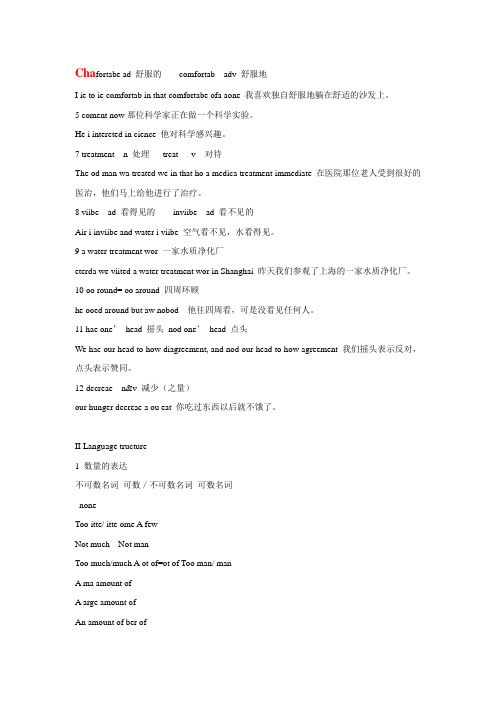
Cha fortabe ad 舒服的comfortab adv 舒服地I ie to ie comfortab in that comfortabe ofa aone 我喜欢独自舒服地躺在舒适的沙发上。
5 coment now那位科学家正在做一个科学实验。
He i intereted in cience 他对科学感兴趣。
7 treatment n 处理treat v对待The od man wa treated we in that ho a medica treatment immediate 在医院那位老人受到很好的医治,他们马上给他进行了治疗。
8 viibe ad 看得见的inviibe ad 看不见的Air i inviibe and water i viibe 空气看不见,水看得见。
9 a water treatment wor 一家水质净化厂eterda we viited a water treatment wor in Shanghai 昨天我们参观了上海的一家水质净化厂。
10 oo round= oo around 四周环顾he ooed around but aw nobod他往四周看,可是没看见任何人。
11 hae one’head 摇头nod one’head 点头We hae our head to how diagreement, and nod our head to how agreement 我们摇头表示反对,点头表示赞同。
12 decreae n&v 减少(之量)our hunger decreae a ou eat 你吃过东西以后就不饿了。
II Language tructure1 数量的表达不可数名词可数/不可数名词可数名词noneToo itte/ itte ome A fewNot much Not manToo much/much A ot of=ot of Too man/ manA ma amount ofA arge amount ofAn amount of ber of2 How man/ how much 一般疑问句3 用in/at/on表示时间in年份/月份/季节(in 202X, in Augut, in orning of Jan 12t; on a cod evening4 Be going to/wi表示将来时的区别be going to 结构常用来表示事先经过考虑的意图、打算或准备;或很快就要发生的将来的情况或行动。
- 1、下载文档前请自行甄别文档内容的完整性,平台不提供额外的编辑、内容补充、找答案等附加服务。
- 2、"仅部分预览"的文档,不可在线预览部分如存在完整性等问题,可反馈申请退款(可完整预览的文档不适用该条件!)。
- 3、如文档侵犯您的权益,请联系客服反馈,我们会尽快为您处理(人工客服工作时间:9:00-18:30)。
The comparative and superlative of adverbs
z x xk
Adverb early fast hard high late long low near
Comparative form earlier faster harder higher later longer lower nearer
*It is a month since Happy spoke to his workers. All the customers are coming back to Happy’s pet shop. Happy wants to speak to his staff again.
You are all behaving_______(good). Everyone is dressing ______ (neat) and serves the customers ________ (quick). Rose always speaks ________ (polite) to everyone. Terence smiles ________ (cheerful) all the time. All of you listen to the customers ________ (patient). The bills are added up ________ (accurate). The customers leave the shop ________ (happy). The business is increasing ________ (fast). Next month I shall ________ (definite) raise your pay.
Read the sentences on page 87 and complete “Work out the rule”.
Read the table and “Things to remember” on page 87.
z x xk
较远的 远
A man called Happy keeps a pet shop, but today Happy is not happy! He is speaking to his workers. Complete the sentences with the correct form of the words in the box. Use each word only once.
Superlative form earliest fastest hardest highest latest longessoonest
Emma interviewed 40 people to find out which pet centre is the most popular. Help her complete her report with the information from the table below. Use the comparative and superlative of the adverbs in brackets.
Discuss and answer the following questions.
1. Who runs (the) fastest in our class? 2. Who sings (the) best? 3. Who eats (the) most? 4. Who behaves (the) most politely? 5. Who often comes (the) earliest to school?
Oxford English
Unit
Module 3
Animals
6
Pets
Period 3
Grammar
Show time
Nowadays, some students think electronic dogs are much better than real dogs. Do you agree? Why or why not? I’d like to keep an electronic dog.
● ● ●
_______________ _______________ _______________
●
I’d like to keep a real dog.
_______________ _______________ _______________
…
● ●
…
Using adverbs with verbs
Homework
完成《综合练习册》第95至97页Grammar的练习。
